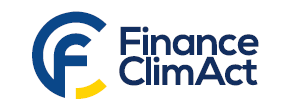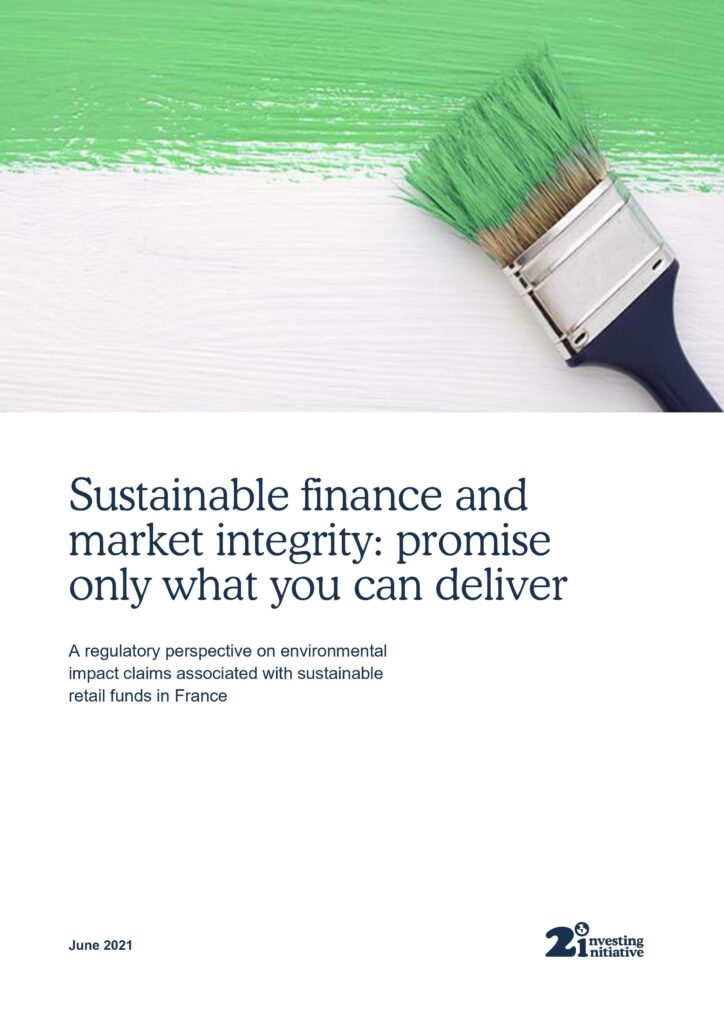In recent years, there has been a significant rise in financial institutions communicating their activities in the areas of sustainable finance, responsible investment, and other equivalent concepts. This comes as retail investors are growing increasingly interested in the potential environmental impact of their investments, with 65-85% of French and German investors saying they want to invest more sustainably. At the same time, investors more broadly have been pouring unprecedented amounts of money into ESG funds: in 2020, these funds more than doubled vs. the previous year despite the effects of COVID-19.
But retail investors remain understandably concerned about the truthfulness of environmental impact claims associated with financial products. This means it is critical for regulatory authorities to foster consumer confidence by setting rules and standards around these kinds of claims. In this paper, 2DII takes a closer look at the current regulatory landscape and what is needed next.
Regulatory analysis & spotlight on the French market
In this paper, 2DII analyzes the regulatory framework applicable to environmental impact claims in the finance sector. This comprises general consumer protection rules (applicable to all sectors) as well as finance sector specific rules. 2DII identifies worrying inconsistencies between the general consumer protection rules as compared to the application of the finance sector specific rules and the stance of financial regulators. Furthermore, the new disclosure requirements being developed in relation to the Sustainable Finance Disclosure Regulation and the Taxonomy Regulation do not address these problems. Consequently, market practices in response to these new disclosure requirements are inconsistent with the general consumer protection principles which themselves apply to the finance sector.
In addition, 2DII reviews a sample of French retail investment funds marketed as having sustainability features, to identify high-level trends in current market practice. While some funds avoided the pitfalls of greenwashing by adopting cautious language, a significant number made unsubstantiated environmental impact claims that plainly steered into greenwashing.
Potential future improvements & recommendations
Despite the current regulatory inconsistency, we see encouraging signs of potential future improvements. For instance, two upcoming EU initiatives aim to boost consumer protection regarding companies’ environmental communications. Additionally, the Commission has tacitly acknowledged the need to clarify the notion of investor impact, as revealed in its 2020 consultation before publication of the Renewed Sustainable Finance Strategy.
Recommendations to ensure improvement of market practices
In view of this trend, we recommend several steps to help improve market practices around environmental impact claims in the finance sector. These include:
- Improving research and data to develop evidence-based frameworks to assess investor impact
- Financial institutions adopting a more sophisticated and cautious approach to environmental impact claims.
- Strengthening regulatory oversight of environmental impact claims
2DII’s Impact Program is currently working on a number of initiatives on this topic, from policy research to development of new tools to engaging with financial sector players. This includes developing a Climate Impact Management System to guide FIs in setting up science-based climate contribution strategies. In addition, 2DII has devised a Climate Action Guide which summarizes information about actions financial institutions can take to contribute to emissions reductions.
Funder information and disclaimer: This project has received funding from the European Union’s LIFE program under grant agreement LIFE18IPC/FR/000010 A.F.F.A.P. This work reflects only the views of 2DII. Other members of the Finance ClimAct Consortium and the European Commission are not responsible for any use that may be made of the information it contains.




